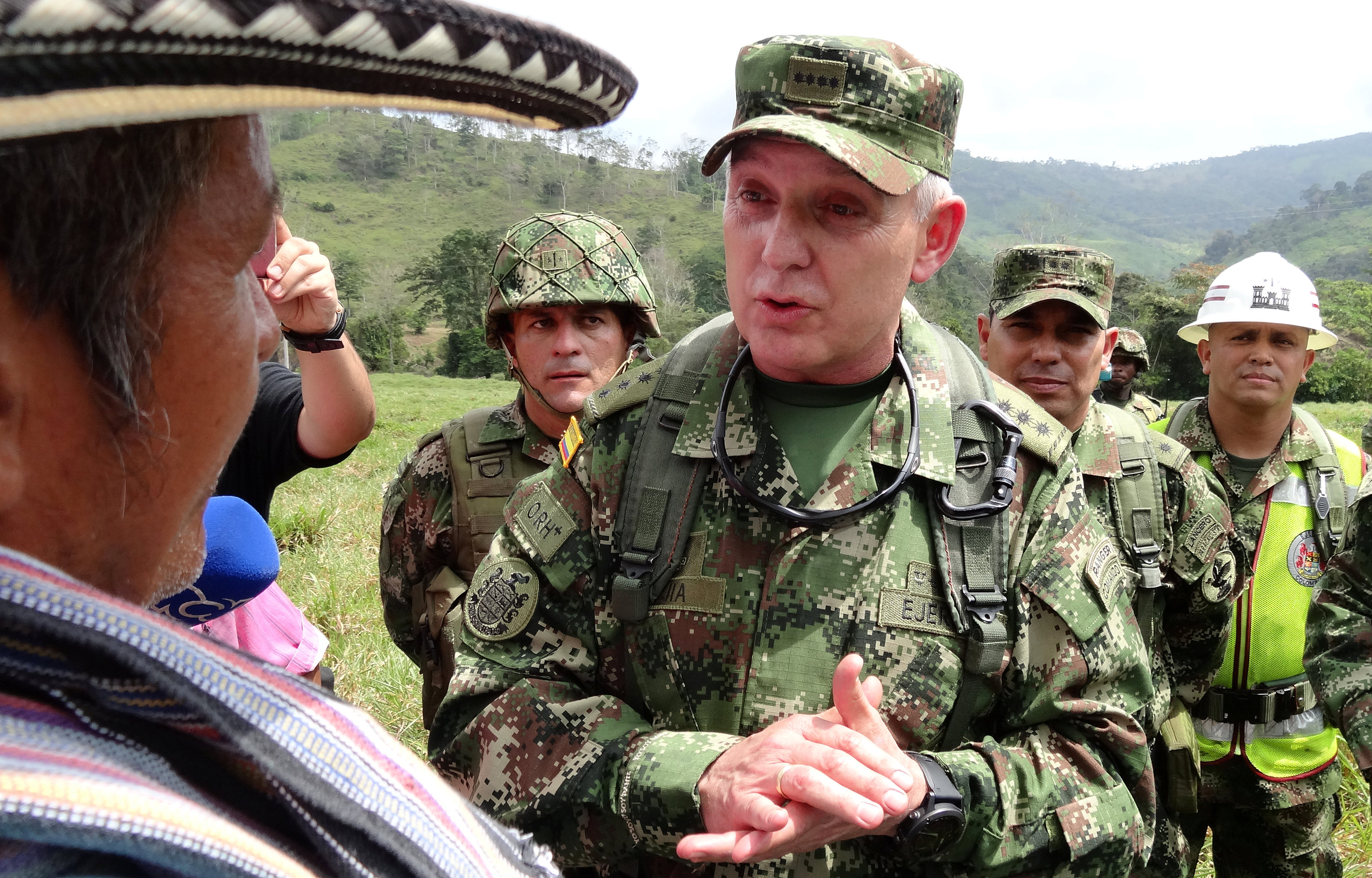Image: Alberto Mejia, Commander of the Colombian National Army, talks to a peasant during the army’s arrival to an area that was previously occupied by FARC rebels, in Saiza, Colombia February 3, 2017. REUTERS/Luis Jaime Acosta
NILO, Colombia (Reuters) – Colombia’s army will strengthen its efforts to combat crime gangs pushing into regions displaced by Marxist FARC rebels, a high-ranking official said on Friday, as it scrambles to prevent an increase in drug trafficking and violence.
Critics of a peace agreement signed late last year with the Revolutionary Armed Forces of Colombia (FARC) have warned of a weakening of the military apparatus that has battled the rebels for more than 50 years.
But army commander General Alberto Jose Mejia said the peace agreement would not lead to a reduction of troops or their steady offensive against illegal armed groups.
“These 1,200 new professional soldiers are part of a group of more than 5,000 who are graduating this year and will be deployed to the most critical areas of Colombia,” Mejia said as he presided over the graduation of new professional soldiers in Nilo, central Colombia. “The purpose is to occupying unstable areas.”
As part of the process, four rapid deployment forces of mobile brigades, supported by helicopters, will be formed to cover the entire country and combat any crime organizations, he said.
The army has 240,000 troops, including 79,000 professional soldiers, a figure that will increase in the coming years, Mejia said.
Some 68,000 members of the military and police force will be deployed to areas once occupied by FARC rebels in order to prevent the spread of illegal mining and coca, the raw material for cocaine.
The army estimates about 300 FARC fighters have withdrawn from the peace accord with the government as dissidents, while 6,000 others are concentrated in specific areas to hand in their weapons as agreed in the peace accord.
(Reporting by Luis Jaime Acosta; Writing by Helen Murphy; editing by Grant McCool)
Copyright 2017 Thomson Reuters. Click for Restrictions.


